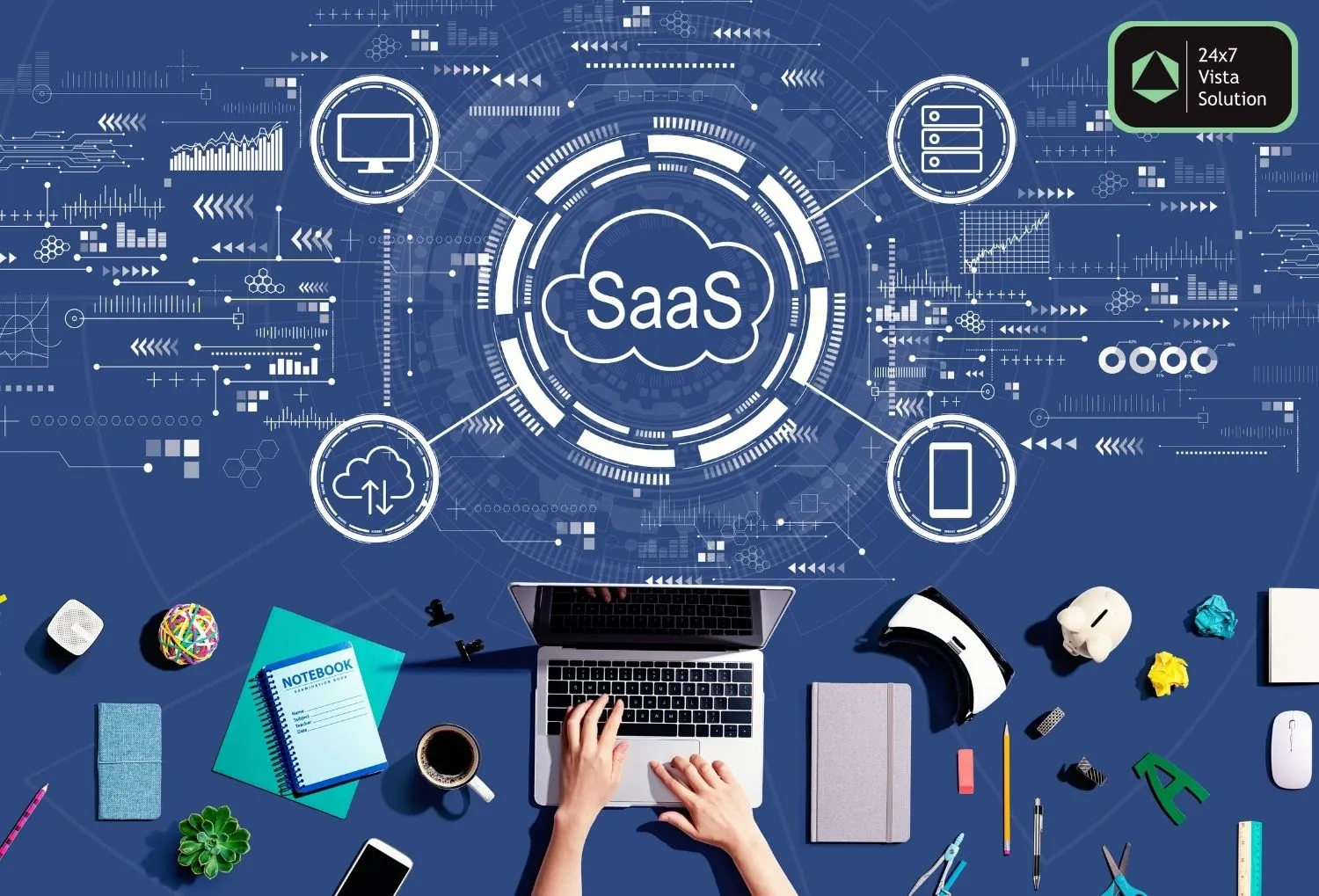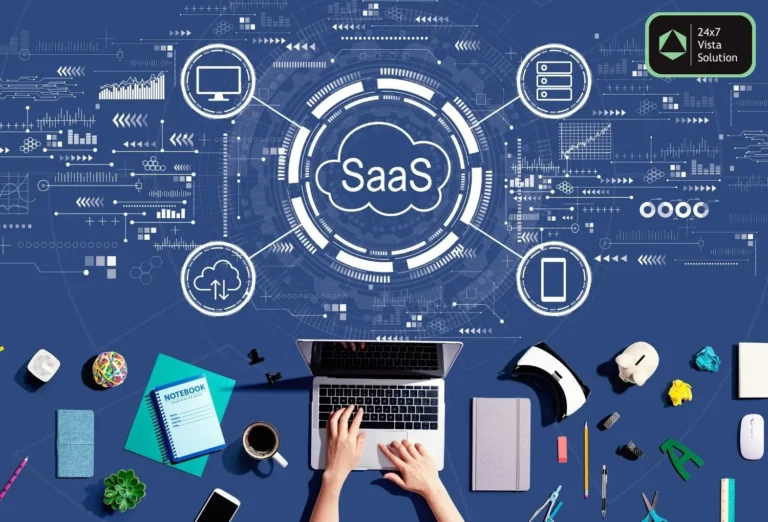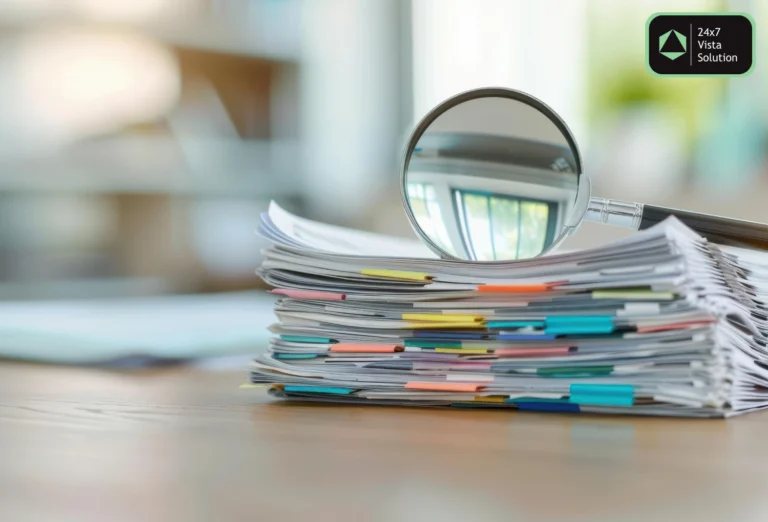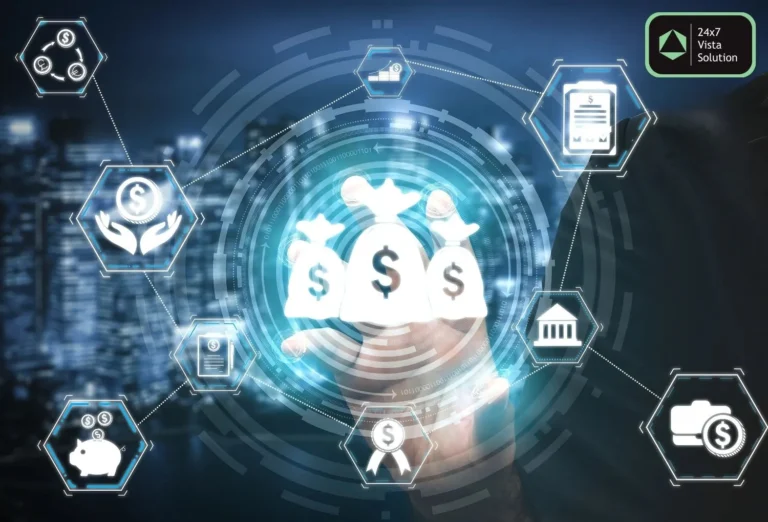Managing money is an important part of running a good business. But in the last few years, there have been big changes in how it is run. The old accounting system had to use big servers, lots of paperwork, and manual deliveries. Software-as-a-service (SaaS) is now revolutionizing the way companies track their money. SaaS accounting services also introduce cloud efficiency, automation, and real-time insights, and help companies to intelligently scale up and save time and money. Now in 2025, as the financial situations evolve fast and regulations become more stringent than ever before. The use of modern tools is more than a technological upgrade; it is a strategic need.
What Are SaaS Accounting Services?
Saas accounting services are a form of control over finances that is peculiar to SaaS companies. These are paid for ahead of time over a long period of time, which means that income is delayed and costs are clearly defined. When figuring out how to record sales on subscription deals, SaaS accounting must follow rules like ASC 606 in the US and IFRS 15. SaaS companies monitor certain metrics to maintain efficient business operations and cash flow during execution.
Why Businesses Need SaaS-Based Accounting in 2025
In 2025, businesses will require SaaS-based accounting due to its low costs. SAAS offers through: Subscription plans
- Scalability to expand with the business
- Efficiency and productivity through financial automation and real-time financial reporting
- Security and accessibility through the cloud infrastructure with advanced security solutions
Also, SaaS ERP can generate data-driven decisions, automate complex processes like
- Recurring billing
- Reconciling
It provides remote access to financial information, making it a key component of modern digital transformation.
What Are The Two Main Accounting Methods
There are generally two accounting systems common to SaaS businesses: cash-basis accounting and accrual accounting.
1. Cash Accounting for SaaS
Under cash-basis accounting, we recognize revenue and expenses as cash is actually receipts or disbursed. Cash accounting is easy to use, yet it does not provide a clear picture of your finances as it lacks accounts receivable and accounts payable. Many small businesses use it.
2. Learning Accrual Accounting of SaaS
Recording of revenue and expenses is done at the time they are earned. The accrual accounting records the revenue and expenses as they occur. The technique provides a better view of the financial status of the company. It is mandatory in a business earning an annual income of at least 25 million dollars, as per IRS guidelines.
Benefits of SaaS Accounting Services
1. Getting Help from Experts
Automated SaaS accounting services will allow you to access the expertise of individuals who understand the ins and outs of SaaS business models. The accountants of SaaS are masters of such matters as recognition of revenue, deferrals, and subscription billing periods. They are knowledgeable enough to ensure that financial processes comply with the standards of the industry and the rules of GAAP.
2. Saving Money and Time
Outsourcing saves time and effort in regard to the accounting work in-house. SaaS accounting services involve automation tools such as accounting software, which make tasks easier, minimize errors, and deliver timely and precise reports. Outsourcing assists companies to focus on their strengths and expand, besides saving time and money.
3. Increased Scalability and Flexibility.
By selecting an outsourced accounting company that can be trusted, a trusted outsourced accounting company lets a SaaS business increase or decrease its financial activity without hiring or training additional workers. As your business grows, SaaS accounting firms may alter their services and support to meet your needs.
4. Improved Compliance and Risk Management.
Outsourcing assists businesses in complying with tax regulations, audit implementations, and other regulations and laws. With SaaS accounting services, you can avoid the risk of violating the rules. This way, you can keep running your business without any problems and avoid expensive fines or legal trouble.
5. Better Financial Insights and Reporting.
The SaaS accounting applies to seek the help of third parties. SAAS companies help businesses to look at detailed financial reports, including financial analytics, in a convenient manner. Real-time analytics can help companies have a better understanding of their financial health, cash flow, and profitability. SaaS accounting services provide tailored reports for businesses, helping them make better decisions and plan strategically with accurate, current data.
6. Gaining access to Advanced Technology and Tools.
SaaS accounting services allow you to take care of your finances with ease in automation as well as the security of your data with the latest software. Outsourcing enables the companies to enjoy the benefits of these great tools without necessarily incurring huge expenditures on expensive infrastructure. The accounting systems through SaaS facilitate simple financial activities and minimise errors to enable companies to remain competitive and adaptable.
SaaS Accounting vs Traditional Accounting: Key Differences
| Aspect | Traditional Accounting | SaaS Accounting |
| Revenue Models | focuses on the sale of products and services in one occasion and there is a straightforward method of monitoring the cash flows. | Devised to make earnings off a repeated basis in the form of subscription, making it essential to be careful in keeping track of recurrent payments. |
| Key Metrics | Measures the progress of the business against general financial measurement, which includes profit and loss statements. | Measures the Customer Lifetime Value (CLTV) and Monthly Recurring Revenue (MRR) to determine sustainable growth. |
| Compliance Needs | Complies with the Generally Accepted Accounting Principles (GAAP) to ensure formal financial reporting. | To identify revenue throughout a subscription period, it follows the GAAP and other requirements like ASC 606. |
The differences demonstrate the fact that SaaS companies should select accounting approaches that will meet their requirements.
How to Choose the Right SaaS Accounting Service
Consider the functionality of each platform to address your fundamental needs when selecting SaaS accounting tools. These fundamental needs are:
- Collaboration with several organizations and the whole world.
- Income recognition and subscription billing.
- Automating accounts payable and processing of mass payments.
- Arranging suppliers independently and ensuring that we comply with international regulations.
- SaaS real time dashboards.
- Architecture Technology is capable of scaling and evolving.
- Networking with primary platforms such as Salesforce, Microsoft 365, and Netsuite.
Popular SaaS Accounting Tools to Explore
1. QuickBooks
A common service to small to medium-sized SaaS firms that assists in automated invoicing, expenses tracking, and identifying revenue.
2. Xero
Xero is good, as it is simple to use and integrates with other applications. It assists in recording the flow of cash, subscriptions, and key performance indicators.
3. NetSuite
NetSuite proves to be a very appropriate solution for larger SaaS companies. It offers intelligent financial management functions, such as managing multiple currencies and automatic billing.
4. Zoho
Zoho Subscription can be an excellent program to manage the accounting of the SaaS companies.
The tools are needed to ease the accounting process and assist the SaaS accounting services in offering efficient and scalable business solutions.
Future of SaaS Accounting Services in 2025 and Beyond
1. Artificial Intelligence, or AI
The percentage of companies that use AI in their financial work is increasing, and 71% are on board. AI does not replace professional jobs; instead, it reduces the number of manual operations and increases the speed and consistency of the analysis. Some of the most significant applications are making reports, planning, managing risks, making predictions, drawing data, organizing transactions and paperwork into groups, and making budgets that change based on new information.
2. Tech and Automation
Automation in tasks such as reconciliations and journal entries is increasingly being employed by more companies to streamline things and have better records. Robotic process automation (RPA) handles those unproductive, mundane tasks, and hyper-automation applies AI and machine learning to provide you with real-time insights. Cloud accounting services help smaller teams to develop scalable solutions without a significant amount of IT services.
3. Accounting software
Finance teams are shifting towards cloud-based accounting systems, which are integrated, and thus it is easier to control and access financial data. Such platforms simplify collaboration between teams and other areas of the business, as well as allow them to maintain the accuracy of data via API. These are business intelligence tools, AI assistants, which make the processes easier and the decisions more effective, and ensure that everything follows the regulations.
4. Data Analytics and Forecasting Tools
Accounting practices of businesses can indeed be enhanced with the help of data analytics and visualization tools. The tools are valuable to get past the stage of looking at past reports and making smart decisions based on dynamic forecasts and scenario modeling by the finance teams. Interactive dashboards simplify things for the non-financial experts. They contribute to collaboration among the various teams and introduce financial insights into broader business dialogue.
This reorientation will bring finance departments to the position of strategic advisors and not number crunchers.
Final Thoughts: Scale Smart with saas accounting services
The ability to move with financial agility is one of the competitive advantages in the current business environment. SaaS accounting services provide a high level of scalability, cost-efficiency, compliance, and real-time feedback, which allows a team to work on growth more than on document reports. By adjusting the old processes, which are full of errors, and substituting them with smart automation, businesses are putting themselves on the path of sustainable growth. Companies that use SaaS now will become smarter and save more money when AI, blockchain, and deeper integrations become the future of finance.





